#MHYALit: Anxiety, Me and Fangirl, a guest post by Danielle Masterson
Today as we continue the #MHYALit discussion, we are honored to welcome YA librarian Danielle Masterson, who discusses anxiety and the book Fangirl by Rainbow Rowell.
My mother used to tell this story of how, when I was a toddler, the doorbell rang and I ran behind the couch and hid. This happened more than once. Everyone in my family believed I was just painfully shy. They laughed at how cute it was that the little girl hid behind the couch.
Throughout my childhood, there are these episodes of “shy” behavior: Refusing to go on an overnight class trip in sixth grade, hiding in the high school library during lunch, and crying during driving lessons.
Shy? Or anxious?
Even now, writing this puts a knot in my stomach and makes it hard to swallow. Am I really going to put this out there for everyone to read?
I think we can all agree this is not shyness – this is anxiety.
Every human being on the planet, and even some animals, live with some form of anxiety. But some of us live with it more than others.
My anxiety used to manifest itself in hair-pulling. Not to the point that I’d yank it out. I’d just take a bit of hair and grasp it in between my thumb and fore-finger. It felt good and distracted me from whatever was making me freak out at that very moment.
I recently saw a 3-year-old girl do the same thing at my library’s Children’s Room circulation desk. We had asked her how she was doing. A harmless question, right?
“How are you, Lola?”*
Lola looked at us with wide eyes. She grabbed a lock of hair and pushed her thumb and fore-finger together. She didn’t answer. I knew the signs of anxiety when I saw it.
I had already fallen in library-love with Lola. She is adorable and sweet, when you can get her to talk. She loves books and the library. Every week, I make a point to talk to her, whether she answers or not. I use her name, I smile, I show her new books.
In just a few months, we have seen the difference. She doesn’t twist her hair as much as she used to. She answers more questions. She smiles widely. Maybe we are helping with her anxiety?
I’d like to think so.
I’d like to think that while many people thought I was “just shy” and I’d “grow out of it,” my high school librarian knew differently. She gave me a sanctuary every day at lunch. I’d go into the cafeteria and desperately try to navigate the social situations. Who would talk to me that day? Would I be able to eat without having a panic attack because I was ignored by my classmates?
I’d get to the library and Mrs. V* would show me new books, give me photocopying to do, or just let me sit and read. I wasn’t supposed to be in the library during lunch, but she never said that. She just opened the door and let me in. It saved me many times.
Here’s a really good Inforgraphic on Anxiety Disorders
If you don’t have anxiety, you may not know what it feels like or looks like. A good depiction is “Fangirl” by Rainbow Rowell. Cath Avery, the main protagonist, suffers from a severe anxiety and describes it eloquently:
She felt tight everywhere. Snapping. And her stomach was on fire.Cath spent the first few weeks of her freshmen semester eating protein bars in her room because she was too anxious to attempt the dining hall alone:Cath was squeezing her fists so hard, her knuckles were going white… She thought about winning. About how she was letting this win, whatever this was – the crazy inside of her.
As Fangirl moves into its second part, Cath’s roommate, twin sister and friends come together to form a supportive circle around her. She even falls in love with the sweet Levi.
While this is charming and makes the reader squee over and over again as she reads, it’s when the anxiety depiction falls apart. Rowell stops telling the story of an anxious college student and begins telling a love story. However, your anxiety doesn’t just disappear because you fall in love.
All that aside, it’s still a valuable read for someone who’s never had anxiety. You’ll see what it’s like to be so worried all the time, it starts to define you. You’ll see how your anxiety makes it seem like it might be easier to give up rather than keep going.
As librarians, we can’t expect to be experts on everything. But we can be sensitive to our patrons and their needs, whether literary or not.
*The name has been changed.
Meet Our Guest Blogger:
 Danielle Masterson is a youth services librarian in Massachusetts. She is a former professional writer of the non-fiction variety on the local, regional and national levels. Danielle graduated from Boston University’s broadcast journalism program in 1999 and worked at a local newspaper for five years, as both reporter and editor. After teaching elementary school for several years, and obtaining a master’s degree from the University of Massachusetts–Boston, Danielle jumped back into journalism before landing her dream job as a librarian. When not at the library, she enjoys reading (particularly anything by Sarah Waters, Conn Iggulden and books at the young adult level), writing, listening to music, watching Doctor Who and British comedy panel shows, and volunteering. She lives in the Greater Boston area with her husband, Les, and dogs, Chloe and Rosie.
Danielle Masterson is a youth services librarian in Massachusetts. She is a former professional writer of the non-fiction variety on the local, regional and national levels. Danielle graduated from Boston University’s broadcast journalism program in 1999 and worked at a local newspaper for five years, as both reporter and editor. After teaching elementary school for several years, and obtaining a master’s degree from the University of Massachusetts–Boston, Danielle jumped back into journalism before landing her dream job as a librarian. When not at the library, she enjoys reading (particularly anything by Sarah Waters, Conn Iggulden and books at the young adult level), writing, listening to music, watching Doctor Who and British comedy panel shows, and volunteering. She lives in the Greater Boston area with her husband, Les, and dogs, Chloe and Rosie.Filed under: #MHYALit
About Karen Jensen, MLS
Karen Jensen has been a Teen Services Librarian for almost 30 years. She created TLT in 2011 and is the co-editor of The Whole Library Handbook: Teen Services with Heather Booth (ALA Editions, 2014).
ADVERTISEMENT
ADVERTISEMENT
SLJ Blog Network
100 Scope Notes
The Moral Dilemma of THE MONSTER AT THE END OF THIS BOOK
A Fuse #8 Production
Cover Reveal and Q&A: The One and Only Googoosh with Azadeh Westergaard
Good Comics for Kids
Winnie-The-Pooh | Review
Politics in Practice
Parsing Religion in Public Schools
ADVERTISEMENT


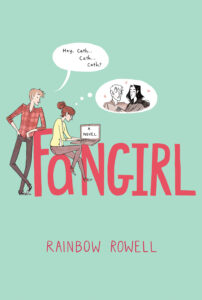
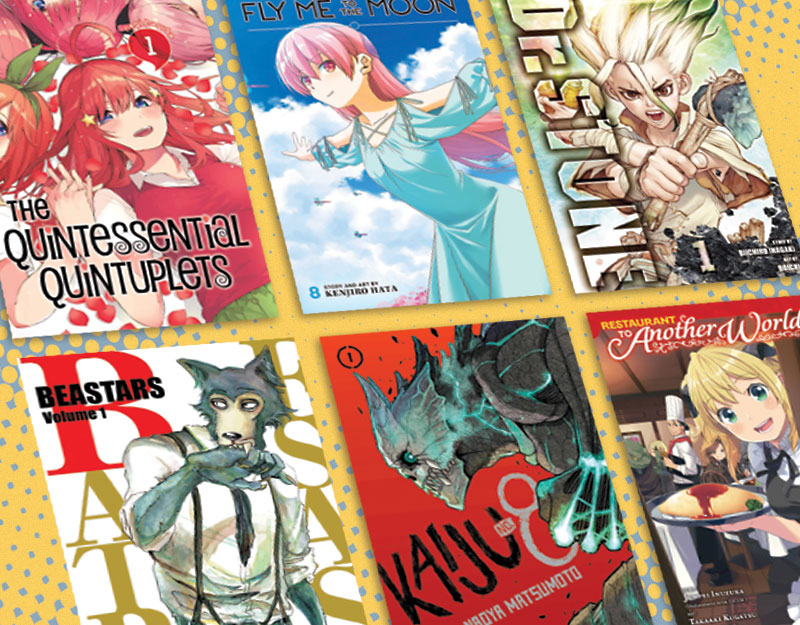
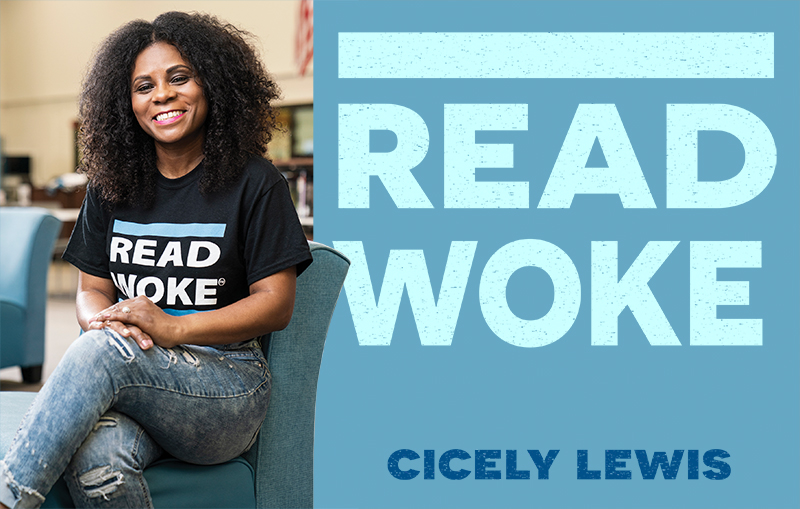
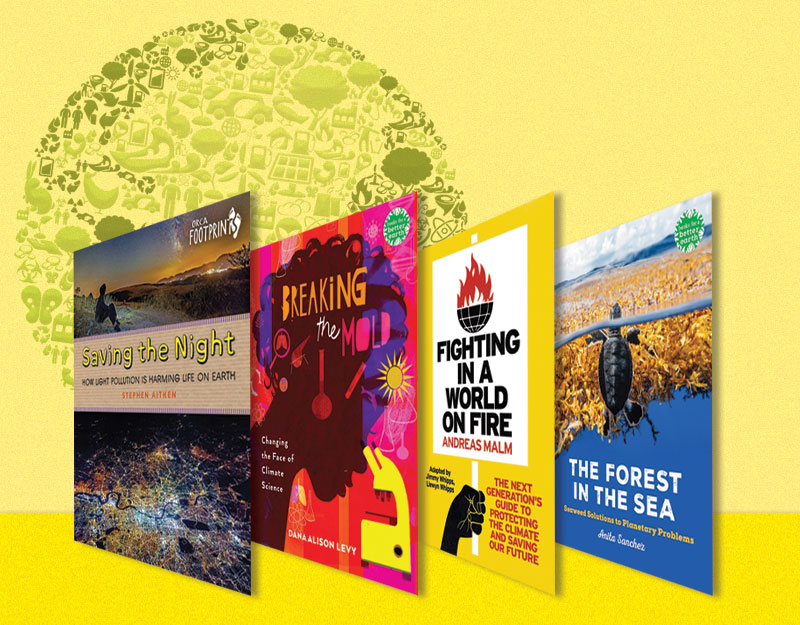
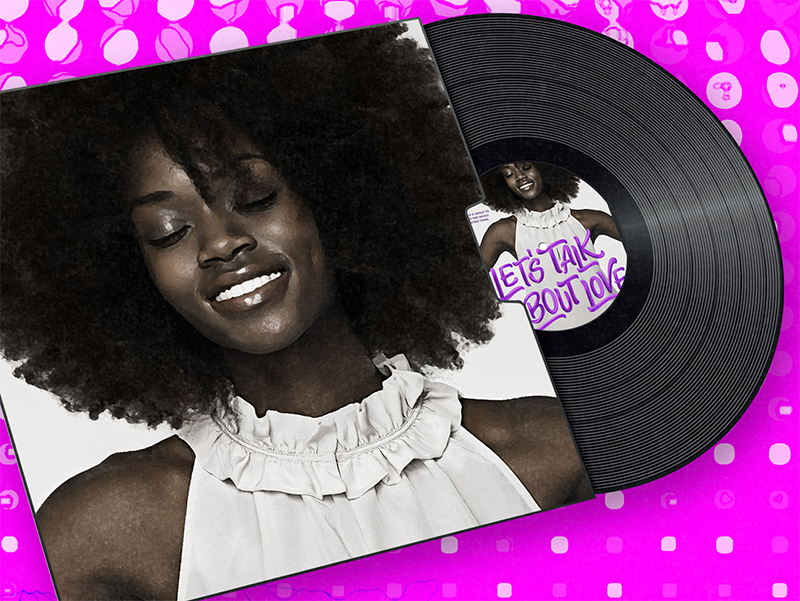
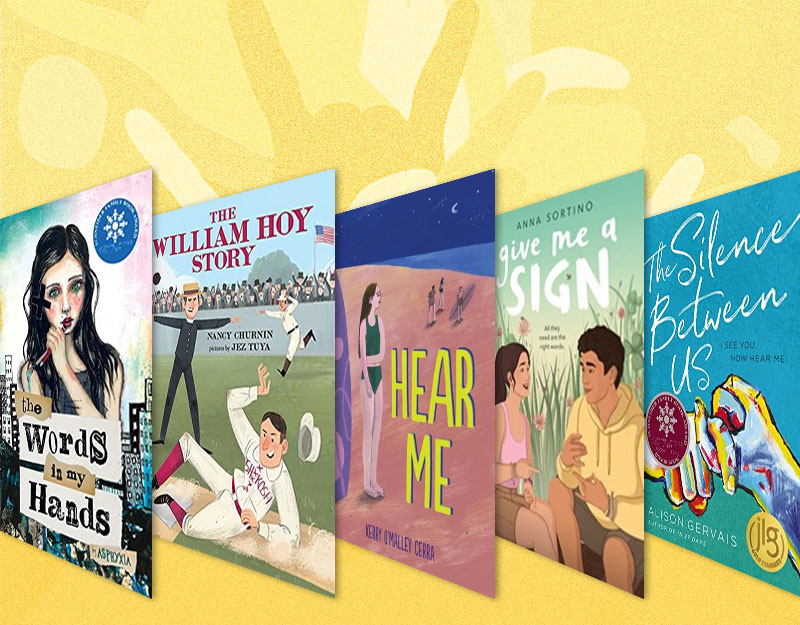
I don’t really think the portrayal of anxiety falls apart once the love story starts. Levi is often frustrated by her inability to have a “normal” relationship with him and she has to use coping mechanisms for a long time to navigate their romance.
Fangirl was so important to me because so much of it matched so closely with my own college experience. So to read some reviews that referred to Cath as “unrealistic” and a “total wet blanket” was incredibly personal to me! Every time I hear from someone else who saw themselves (or a loved one) in her and that book it heals the wound a bit. 🙂